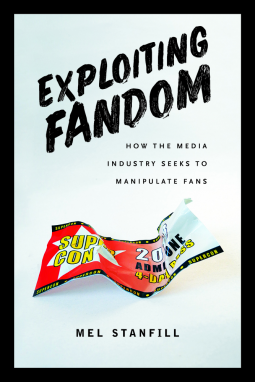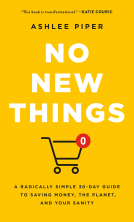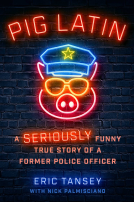
Exploiting Fandom
How the Media Industry Seeks to Manipulate Fans
by Mel Stanfill
This title was previously available on NetGalley and is now archived.
Send NetGalley books directly to your Kindle or Kindle app
1
To read on a Kindle or Kindle app, please add kindle@netgalley.com as an approved email address to receive files in your Amazon account. Click here for step-by-step instructions.
2
Also find your Kindle email address within your Amazon account, and enter it here.
Pub Date Feb 15 2019 | Archive Date May 31 2019
University of Iowa Press | University Of Iowa Press
Talking about this book? Use #ExploitingFandom #NetGalley. More hashtag tips!
Description
By bringing industry studies and fan studies into the conversation, Stanfill looks closely at just who exactly the industry considers “proper fans” in terms of race, gender, age, and sexuality, and interrogates how digital media have influenced consumption, ultimately finding that the invitation to participate is really an incitement to consume in circumscribed, industry-useful ways.
Advance Praise
“Exploiting Fandom is a long overdue book that brings together media and sports fandom studies under the lens of fan labor. It is mandatory for anyone working in the field, and its clear argument and extensive and interesting case studies make it accessible to more general audiences as well.”—Kristina Busse, author, Framing Fan Fiction: Literary and Social Practices in Fan Fiction Communities
“Stanfill writes with an impressively strong sense of theory, helping the reader to understand how fans are incited to particular identities and practices and what their potential exploitation by industry might actually mean. In this focus on the management of fandom, Stanfill both contributes to critical media industry studies and directs much needed attention to the politics of gender, sexuality, and race at these intersections.”—Derek Johnson, author, Media Franchising: Creative License and Collaboration in the Culture Industries
Available Editions
| EDITION | Other Format |
| ISBN | 9781609386238 |
| PRICE | $75.00 (USD) |
| PAGES | 262 |
Links
Featured Reviews
 Laura H, Reviewer
Laura H, Reviewer
I received an ARC of this book thanks to Net Galley and publisher University of Iowa Press in exchange for an honest review.
This was such an interesting read to me! When I requested it, I wasn't sure what to expect. I have minor academic experience of media studies and essentially no background in business, sports or any of the topics this book could come under (apart from a personal interest in demographics). The introduction was very dull for me as it is essentially just a list of the methodology. This was probably necessary as this seems to have been adapted from a dissertation or some other academic paper, but it wasn't really a great start to the book. Thankfully it was uphill from there.
By far my favourite sections were the first two chapters which focus on how sports and the media identify and view their fans in terms of demographics. Some fascinating points were made about how the industries assume default fan is a white male and how this influences both their marketing and reaction to fan behaviour. The author uses a wide range of sources and examples which creates a very in-depth and insightful look at fandom as a whole. I loved this section and thought it was excellently written.
The next bit was about the legality and fan's knowledge of the law. I must admit, I did skip most of this section. Law has never been interesting to me and while I was curious about fanfiction and the laws surrounding that, most of the focus was on fan's perception of the law without clarifying what the actual law was. I can see this being interesting to some but sadly it was not for me.
The final chapters are what I suppose the book is mainly about-that is, how fans engage in free labour due to their love of a work/sports team and how industries exploit this. These parts were fairly interesting and again, made some very good points. I would have liked to see this section expanded more with specific examples though. Every other section has lots of examples which illustrate the arguments well but there weren't many to be found in this bit. I know fandom's mere existence is a form of free labour in itself (promoting etc) but it still could have been interesting to find anecdotes of fans' work being used professionally or something similar.
Overall, I think this book's topic wasn't actually as for me as I thought it would be but I still enjoyed it immensely. It has well-written, thoroughly researched content and a cohesive narrative that brings everything together beautifully. There are some well-argued points to be made here and I think it raises some interesting questions. I would definitely recommend this book if you have any interest in fandom and how the industries treat their fans. Just be aware that it is an academic work and so some parts might be a bit dry or less compelling than others.
Overall Rating: 4/5
Far more academic in nature than I was expecting, which was definitely a good thing in this instance. Certainly insightful in a number of places. Think it would make a decent further reading suggestion for students enrolled in a media student courses.
Found the chapter covering media giants tasking fans of television shows and films with doing the work of marketing companies for free rather illuminating.
With thanks to the publisher and Netgalley for the ARC.
 Sandra K, Reviewer
Sandra K, Reviewer
The material presented here is incredibly dense but eye-opening. As someone who has been involved in fandom to various degrees my entire life, the idea of being exploited (even without my awareness) is one that sat very uncomfortably with me. Stanfill's arguments very much fit my personal experience of fandom but gave them a twist that made me see them in a new light. The shifting view of copyright from "monopoly" to "ownership" explained so much about the way IP content is approached from a transformative perspective but left me feeling a little icky. In the end, the question was not one of whether the exploitation of fandom is morally right, but more one focused on the fact that without knowing how (and that) we are being exploited, we don't even have a voice at the table.
 Hillary J, Librarian
Hillary J, Librarian
I've been in fandom since the usenet days, and lived through the days when a few high name authors went on rampages to destroy the fandom works based on their books.... (Rice, Gabaldon, etc.) This book shows the shift I've seen from the fan as the "adversary" to the originator holding onto and essentially profiting, from their work, to the fans as a tool to be utilized. Everything from using fans to keep a show on tv, to using their fandom creations to create promo work, and now to the outright stealing of fandom created merch, ideas, etc., by the actual showrunners, as budgets get cut. The fans have almost become a supplement for networks and publishing houses to get the material and not have to pay. This book explores how the relationship is becoming more and more toxic as bigger companies and creators realize just how much control they have and how much fans want to be acknowledged at any cost. Not only that, but what does it mean to the actual fandom in general?


















